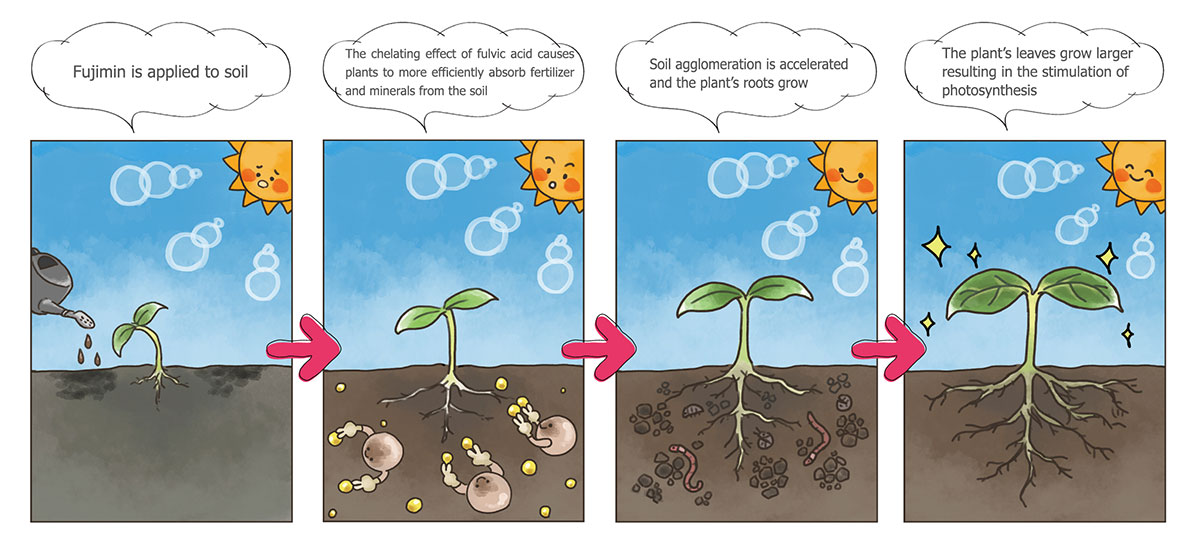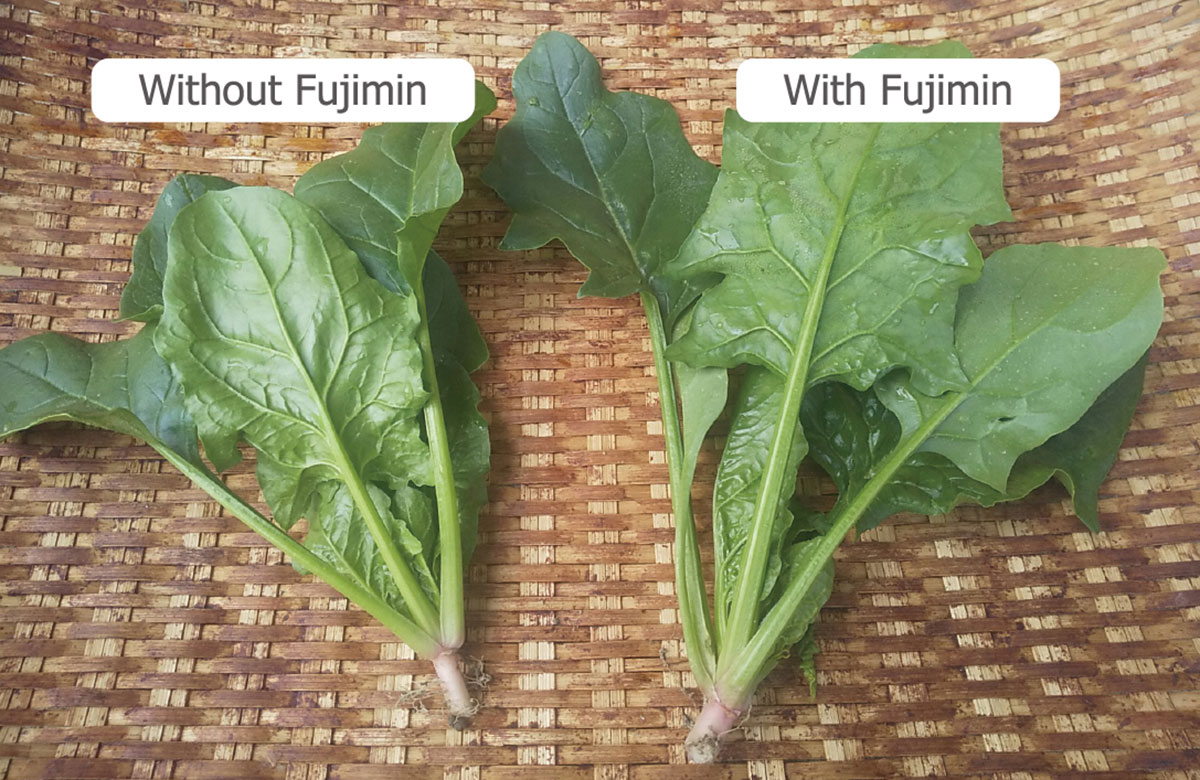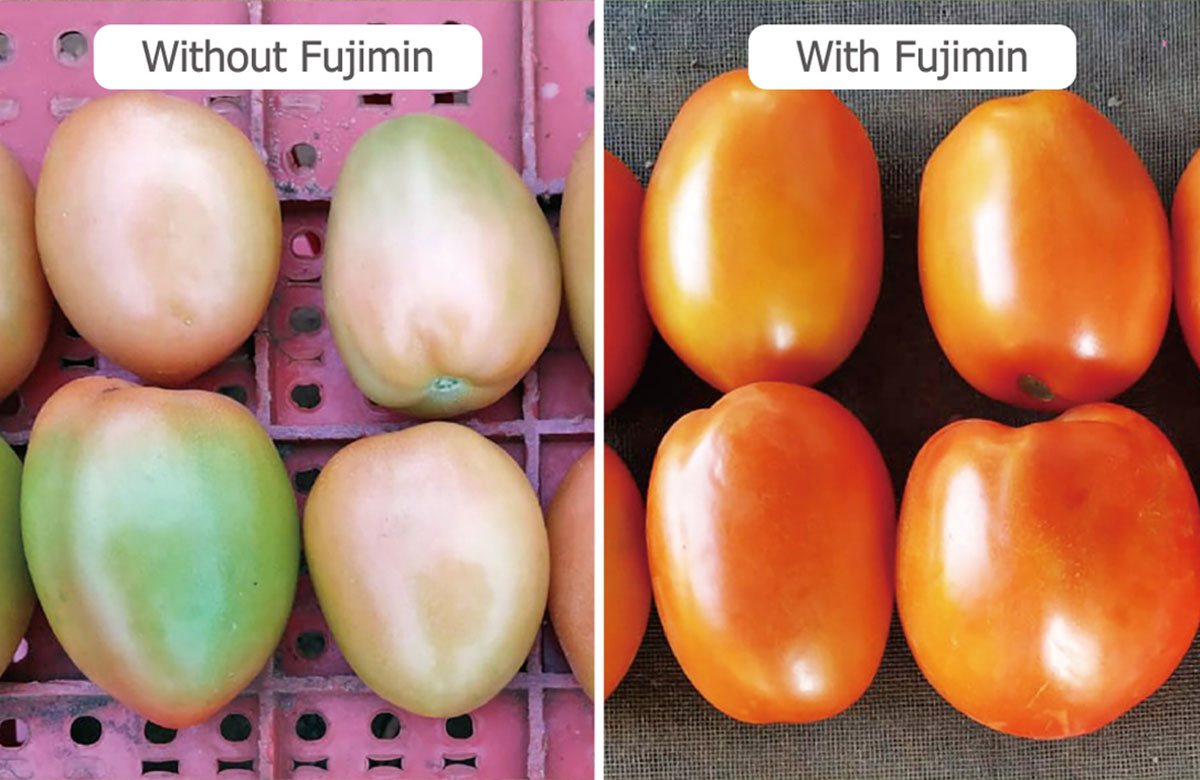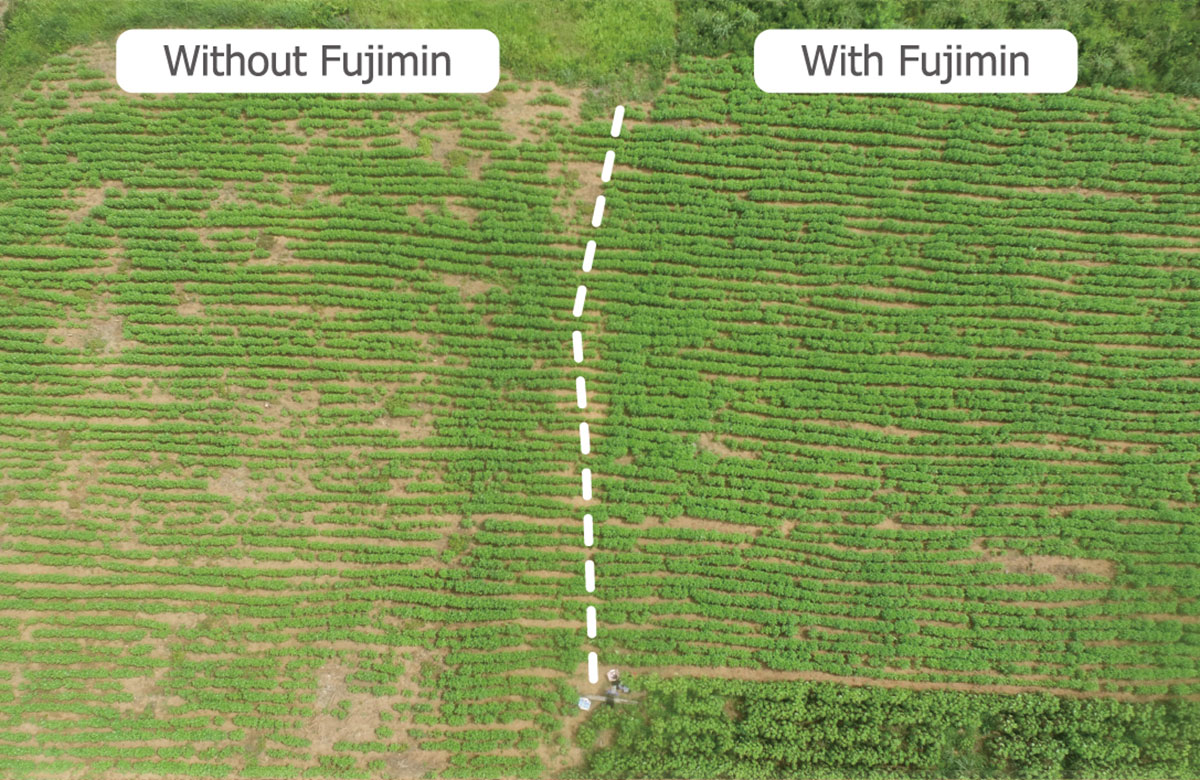Footnote
(Note) Salts contained in irrigation water or in the original soil layer rise as the groundwater level increases, and only the salts accumulate on the ground surface by evaporation. The salts that accumulate include sodium chloride, sodium sulfate, calcium sulfate, and magnesium sulfate.
Improvement of Agricultural Land with Mass-produced High Concentrate Fulvic Acid Using Forest Resources
JAPAN CONSERVATION ENGINEERS & CO.,LTD.
| Publication date | February 15, 2022 (Posted on July 5, 2022) |
|---|---|
| Sector | Agriculture, Forestry, Fisheries |
Company Overview

JAPAN CONSERVATION ENGINEERS & CO., LTD. was established on May 2, 1966 as a company specializing in disaster prevention measures with the belief that “appropriate developments are based on accurate disaster prevention measures.” Under our corporate philosophy: “we aim to contribute to build a sustainable nation and promoting welfare for all members of society by pursuing civil engineering technology related to earth, water and vegetation.” We have organized a nationwide network of experienced and skilled engineers, and have been developing our business in the three areas of consulting, construction/operation management, and research and development.
Climate Change Impacts
Currently, climate change is causing a yearly decrease in agricultural land due to soil salinization(Note) and soil degradation. This is occurring in 20% (62 million ha) of the world's irrigated land, in an average of 2,000 ha/year of agricultural land around arid and semi-arid regions in 75 countries. In addition, the yield of agricultural products (rice, wheat, soybeans, and maize) is predicted to decrease due to rising temperatures worldwide.
Adaptation Initiatives
We have developed a high purity fulvic acid plant-growth bio stimulant, Fujimin® (hereinafter referred to as Fujimin), that contributes to the control of environmental changes in agricultural lands degraded by climate change and soil degradation. Fulvic acid is a substance with an excellent "chelating effect" that changes substances that are difficult to absorb into a form that is easier to absorb and converts toxic substances in the body into a form that is easier to discharge. In addition to improving the efficiency of fertilizer absorption, fulvic acid has the following effects: buffering of soil pH, control of damage from salinity, activation of photosynthesis, promotion of soil aggregation, and improvement of plant robustness (Figure 1).
For example, in the field of civil engineering and landscaping, when Fujimin was applied to land slopes, vegetation mats, and ground that had dried out and failed to germinate due to extreme heat, the absorption efficiency of the fertilizer components was improved, enabling earlier greening. As another reported case in the agricultural field, when Fujimin was sprayed on agricultural land where spinach was cultivated using organic farming methods, the stems and roots grew thicker and the leaves grew larger compared to the areas that were not sprayed (Figure 2). As a case outside Japan, Fujimin was applied to tomato and sesame plantations in Paraguay, and the tomatoes grew faster with more mature and dark-colored yields (Figure 3). In the sesame plantations, the stems and roots became thicker and longer, and the number of fruiting plants increased. As a result, the yield was approximately three times higher compared to the unsprayed area (Figure 4).
Fulvic acid is normally found in humus where organic matter produced by plants and animals becomes decomposed by microorganisms, but it is a natural resource that is only produced in very small quantities in nature. Since the majority of fulvic acid is extracted from mining overseas, there have been raising concerns about the possibility of environmental destruction and resource depletion. However, we have established a technology to mass produce high purity fulvic acid using wood chips and organic acids produced in Japan.
Fujimin is used in the fields of civil engineering, landscaping, and agriculture, and after being selected for JICA's "Small and Medium Enterprises and SDGs Business Support Project" in 2018, it has also been expanding overseas.
In 2019, we were registered in the Sustainable Technology Promotion Platform (STePP) (Figure 5) managed by UNIDO ITPO (the United Nations Industrial Development Organization’s Investment and Technology Promotion Office), Tokyo. There is a set of criteria for registration, which includes technical aspects such as whether the technology can be applied in developing and emerging countries, whether it is superior to competing technologies, and whether it is sustainable, as well as an evaluation of the company’s commitment to its operation. The registration is a form of evidence that our technology has been recognized as exceptional and useful for sustainable industrial development in developing and emerging countries.
Effects / Expected Benefits
There are many areas in the world that require soil improvement due to various adverse environments, and land affected by salinity alone account for a quarter of the world's agricultural land. Fujimin has a proven track record of soil improvement in such areas, and we have high expectations for its further worldwide expansion.





- JAPAN CONSERVATION ENGINEERS & CO., LTD. company web site
- JAPAN CONSERVATION ENGINEERS & CO., LTD. "Concentrated Fulvic Acid Plant Activator Fujimin®"
- UNIDO(STePP)
- Ministry of the Environment "Minister of the Environment's Award for Climate Change Action, 2020"
- JAPAN CONSERVATION ENGINEERS & CO., LTD. Introduction of Fujimin® on YouTube

